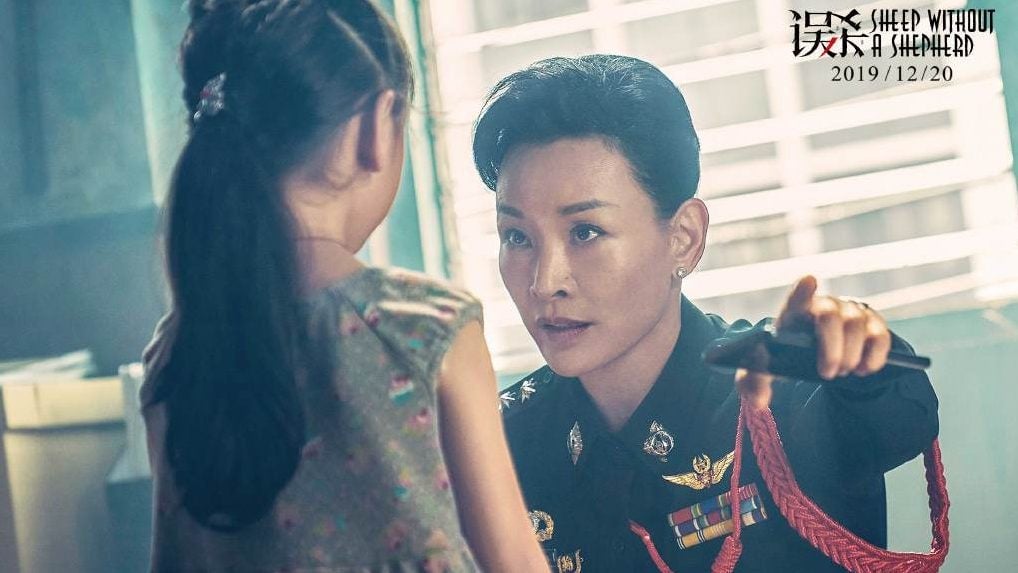A Bollywood film about getting away with murder got a “harmonious” remake in China
A Chinese remake of a Bollywood thriller about a father who’ll go to any lengths to protect his daughter is doing very well at the box office—even though viewers couldn’t help but notice a rather telling change to the way his battle of wits with the cops ends.


A Chinese remake of a Bollywood thriller about a father who’ll go to any lengths to protect his daughter is doing very well at the box office—even though viewers couldn’t help but notice a rather telling change to the way his battle of wits with the cops ends.
The Chinese movie wùshā (误杀, or “manslaughter”), which went to No. 1 when it opened on Dec. 13 in China, tells the story of a father who helps his older daughter cover up her accidental killing of a boy who tried to blackmail her into sex. Unfortunately, the dead boy just happens to be the son of a powerful female police inspector and of a local politician. Much of the film, whose official English title is Sheep Without a Shepherd, dwells on the family’s cat-and-mouse game to establish alibis—culled from plots of detective movies—and avoid discovery by brutal cops who are trying to prove they’re guilty.
It is a remake of Indian crime thriller Drishyam, which first appeared as a 2013 regional Indian film and then got a Bollywood remake in 2015. One Indian film writer noted that the chain doesn’t end there—the story also resembles Keigo Higashino’s hit Japanese detective novel, The Devotion of Suspect X.
While the Chinese movie’s portrayal of police corruption and class conflict struck a chord with its audience, the plot departs from the Indian versions in a rather crucial way. At the end of the Bollywood version, the family gets away with their crime, and a flashback reveals that the cops are literally sitting on the hidden body. In the Chinese production, meanwhile, the father turns himself in to the police. It’s an ending that Beijing would consider far more socially “harmonious” than the original—an official term that came into vogue around 2006, when former Chinese president Hu Jintao promoted the concept as a governance goal. It’s now also used by people in China to mock the censorship and suppression that social harmony seems to require.
“The changed ending has ruined the whole film. In the Bollywood version, the body buried under the police station conveys a hidden message: one could only find justice and fairness after stepping on the corruption and darkness under their feet. When bad cops are in charge and the laws don’t work, one could still find ways to beat evil forces,” said a user on Douban (link in Chinese), an IMDb-esque Chinese film review site. “However the ending of the Chinese film feels like it is telling the audience, do not resist when being raped and threatened, because if you accidentally kill the rapists, you would end up in jail.”
That comment was liked over 6,000 times, making it one of the most popular comments on the film’s page on the site.
A user on social media platform Weibo said, “I really don’t like this harmonious ending, even if the film itself is good. There is no real justice in the world, grassroots people are all just lambs waiting to be slaughtered.”
The original Indian ending was more of an indictment of social injustice and corruption, with the buried body symbolizing rage and contempt toward the police. But then, it’s not so easy for Chinese films to challenge the authorities.
In China, both foreign and domestic movies go through strict censorship to make sure they don’t contain “non-harmonious” elements. As a result, Chinese crime films often ”are crime free, ghost tales have no ghosts and crooked politicians can’t be crooked,” one foreign screenwriter discovered. A bad cop in a movie set in China is very likely to turn out by the end of the movie to have been undercover. That’s why the movie also made other key changes—it was shot in Thailand and the story is set in a fictional Southeast Asian country called Sai. The corrupt cops victimizing the immigrant Chinese family are foreigners, not Chinese.
“The film has taken the core plot from the Indian version. But because the story cannot take place in China, so it has to happen in Thailand. This combined with the ‘harmonious’ ending means I could not give the film a high score,” said a user on Weibo (link in Chinese) yesterday.
Although the Malaysian director of the Chinese film, Sam Quah, defended the change (link in Chinese) as having been made purely out of “artistic considerations,” some aren’t convinced.
“After watching over 100 Chinese films you would learn one thing: there’s no production that can’t be destroyed by a horrible ending with Chinese characteristics,” said a Douban user (link in Chinese).